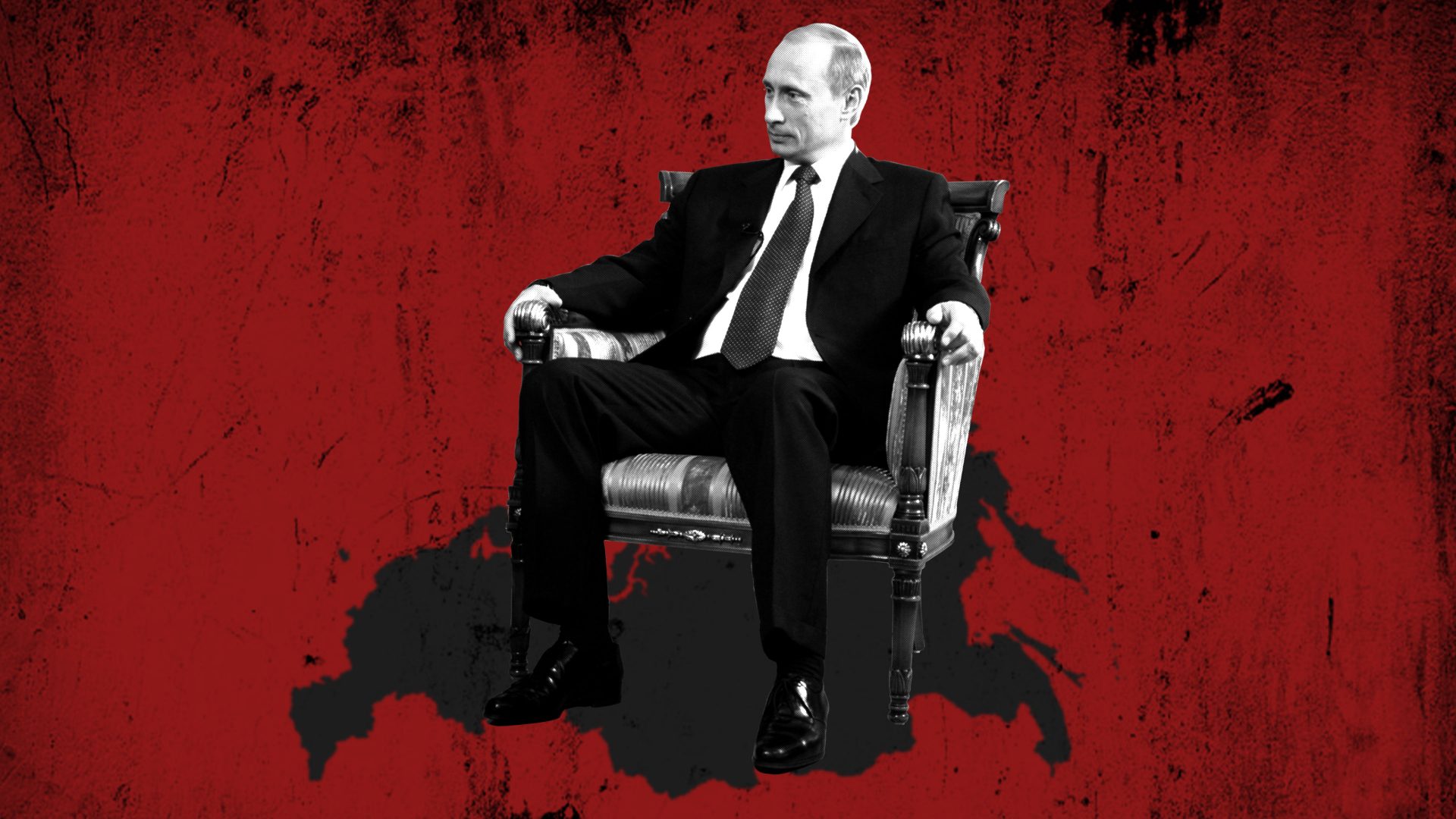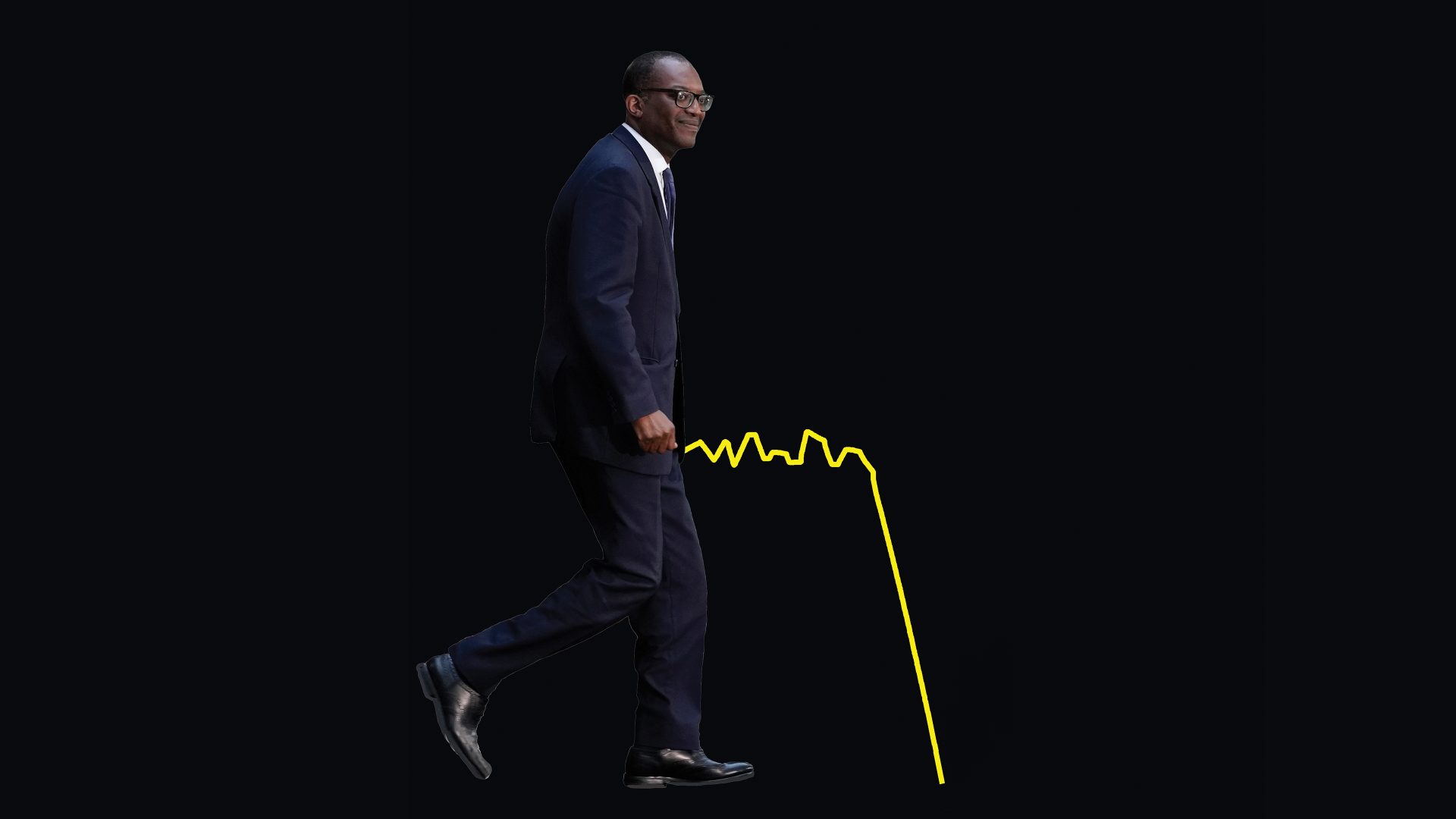I realised it was never going to get that far; skiing was to blame. It was early 2012. Alexei Navalny, the charismatic Russian opposition leader, had called another protest on to the streets of central Moscow. A friend of mine was going, but he lamented the fact that other friends were too busy. They had, he said, already booked a skiing holiday in Courchevel.
That explains one of the many reasons Vladimir Putin has been able to stay in power for so long. Putin’s deal with the Russian people was that they would be rich and obedient. To him. That explains why he has been able to do what he has done, and why he assumed nobody would stand up to him. Properly. Not just writing blogs and doing vlogs from the comfort of one of the many European cities that hundreds of thousands of middle-class Russians now call home, or second home.
As for serious internal opposition, Alexei Navalny is languishing in a high-security prison, doing his best to stay alive. Did he really think when he returned to Russia in January 2021, cameras in tow, that Putin would do anything other than put him in jail?
After all, he had been poisoned by agents in Siberia and if it hadn’t been for the quick-wittedness of a pilot, local doctors and the German government, he would be dead. Alongside Boris Nemtsov, gunned down on a bridge. Alongside Alexander Litvinenko, poisoned in London. Nearly alongside Sergei Skripal, who was poisoned in Salisbury but survived. In recent weeks a number of people have mysteriously fallen out of windows in Russia. That is Putin’s way.
Whatever happens to Putin now, do not expect any democratic revival. There are too many people with too much to lose. And there are not the structures for it to be established, let alone sustained.
I did not always think that way. Back in the early ’90s, as a foreign correspondent in Moscow, I bought into the conventional wisdom that Russia was on the path to a more liberal and open future. It would be an imperfect democracy, but I was in thrall to Russian journalists who were reporting the news as they saw it, rather than the make-believe they had been required to put out. History was being researched openly; archives were being opened up. People were travelling unhindered.
Now that period is denounced, not just in the official language of the Kremlin but by many in the West too, as the era of chaos. That is largely but not completely true. The problem was that none of the changes were embedded. More importantly, a small number of people stole the wealth. Privatisatsiya became prikhvatisatsiya – theft an almost exact synonym for privatisation.
Alongside the oligarchs, a new middle class was born. The Muscovites I knew became excessively acquisitive – “meet me in St Tropez, I’ll be there briefly next Tuesday” – but deprived until then of opportunities to live life to the full, who could blame them? They had no illusions about the nature of Russian power; they assumed a Singapore style of government, but they were confident they could hedge a comfortable life at home with a bolthole elsewhere if needed. The deal was that they would not make too much of a fuss, as long as their lives got better. Now almost everyone I know lives abroad.
When were those hopes dashed? Was it the violent suppression of the Navalny protests in 2011-13? Was it the first invasion of Ukraine and annexation of Crimea in 2014? Was it any of the many murders? Was it only now? Or was it as early as April 2001, just three months into his tenure as president, when Russia’s first independent television station, NTV, was closed down?
Or perhaps, as the historian Orlando Figes suggests, these are the wrong questions to ask. “Twice in the 20th century, in 1917 and 1991, the autocratic state has broken down, only to be reborn in a different form. The public forces unleashed in the state’s collapse have turned out to be too weak and divided to sustain a democratic government,” he writes in his new book, The Story of Russia. “This has been a recurring pattern throughout Russian history. The autocratic state has been challenged many times by popular revolts but has always re-established its power.”
Figes contends that western policymakers and commentators have committed three basic errors. The first is the transference of their world view on to another’s. The second is a tendency to mix only with Russians like them, the metropolitan elites of Moscow, St Petersburg and the diaspora. The third is a failure to understand Russia in its 1,000-year context. He points to the absence of symbols and ideas in history around which Russians could unite. “Their identity had been subsumed in the Russian empire, and then in the Soviet Union, where they were regarded as the leading nationality. Russia had existed as an empire for so long that it could not simply reinvent itself as a nation in 1991.”
In its place came a more inchoate, but at least as powerful, set of values: Russky Dukh, the Russian Soul, a notion made popular by Fyodor Dostoyevsky and other writers of the 19th century. A sweeping, largely empty landmass straddling 11 time zones across Europe and Asia – hence the perennial struggle between the Slavophiles and westerners; a country where the vast majority of its people have always struggled to survive, while a tiny group at the top have ruled with an iron fist.
The Russian Soul philosophy is based on the “uniqueness” of the Russian identity, in its right to jurisdiction over Slavic lands (loosely interpreted), alongside feelings of grievance and encirclement. This is given pseudo-moral authority by the Orthodox Church, which has always stayed close to Russian political power.
Tsarist and communist rule, vastly different in their economic models and symbols, are now bound into Putin’s vision of modern Russia. He has now rehabilitated everyone from Nicholas I (his favourite Tsar) to Stalin, playing to the narratives of the past while showing a visceral loathing towards the West, fuelled by a sense of rejection.
Do people buy into any of this? Do they believe the propaganda that spews out every day, a stream of bare-faced lies told with high production values? Opinion polls suggest they do – but no matter how hard it tries with its methodology, I doubt the Levada Center, the main polling organisation, can accurately track the national mood in an atmosphere of such intense fear.
In any case, this again is the wrong question. Ultimately it does not matter whether voters fall for it, as long as they go along with it. The Russia of 1917, just like contemporary Russia, has suffered from a brain drain of a kind usually associated with countries at war, or in other forms of disarray (Lebanon since the 1970s being the best example).
The more that Russians “like us” leave, the easier it is for Putin. Those who stay are damned if they protest (imprisonment, torture), damned if they don’t (accused of a lack of moral fibre). Perhaps that is why many go for the middle way of posting footage of police crackdowns online, so that the world can see, while not crossing the road to help.
The mass mobilisation of recent days has changed things. A war that felt remote is now on everyone’s doorstep. Precious few people who are not professional soldiers want to fight Putin’s war. Thousands of Russians have fled, mainly to post-Soviet lands to the south now that the EU has closed its borders. Meanwhile, the dangers of a nuclear strike increase with each day.
Might Putin be toppled? A couple of Saturdays ago I was sent messages from Moscow friends saying something was afoot. It turned out to be a false alarm, probably wishful thinking. I remember from the attempted coup in 1991 that nobody has an inkling until the very moment it happens. But if it ever does happen, would this present another moment of renewal for Russia?
Think back to Stauffenberg in 1944. Historians continue to argue over the motivation of the military plotters against Hitler. The central reason, however, was a belief that the Führer was no longer capable of rational decision-making, and that defeat and humiliation were beckoning. Sound familiar?
To attempt that now, and to fail, would be to encounter the same fate as Stauffenberg and his accomplices, and to a wider purge of senior figures. Success could lead to four scenarios: chaos, with different groups fighting for control over a state armed with nuclear weapons; the arrival of a hardliner, egged on by ultra-nationalists, more determined even than Putin to “win” in Ukraine; the arrival of a more rational authoritarian ready to sue for peace, but only on terms that would not imply Russian weakness; or the return of Navalny or someone like him, ushering a new dawn of democracy.
The only scenario one can predict with near-certainty that will not happen is the last one. The political structures and culture would snuff it out instantly. They are the ones with the power. As we all found out, eventually, in the ’90s.




